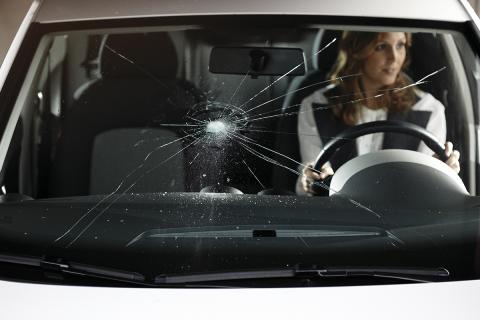Throughout the year the General Directorate of Traffic (DGT) has planned a series of special surveillance campaigns depending on the type of vehicle (for buses, vans…), offense (speeding, alcohol consumption… ). This is not the case with the new DGT campaign that starts today and runs for the next seven days, it affects you no matter what car you drive.
The Traffic agents of the Civil Guard and the Local Police who have joined the campaign have orders to pay special attention to ensuring that the vehicles in circulation maintain optimal conditions for circulation.
During the next seven days the possibility of the Civil Guard stopping you on the road increases to check, among other aspects, that the vehicle you are driving has passed the ITV, as well as the state of the tires, brakes, lights and signage elements.
To avoid problems in this inspection, the DGT recommends reviewing these 10 elements:
-
Address. If you perceive gaps, noises, vibrations, abnormal hardness when turning or irregular wear on tires, it is that you need a thorough review
-
Brakes. Pay attention to the condition of the pads, discs and brake fluid level
-
Suspension. “Its deterioration is imperceptible, but stability and braking capacity depend on it,” they say from the DGT
-
tires. In addition to checking the depth of the drawing (1.6 mm minimum), it must be verified that they do not present deformations or irregular wear. It is also important to check from time to time that the pressure is correct
-
Lights. Both the indicators and the lighting must be in perfect condition and well regulated.
-
Battery. A high percentage of roadside assistance is due to a failure in this vital element for mechanics
-
Levels and filters. In this section it is key to check the level of the brake and windshield wiper fluid; also of the oil, as well as the tension of the belts and the state of the oil, air and pollen filters
-
Air-conditioning. Being able to maintain an adequate temperature in the passenger compartment is not only a matter of comfort, traveling with too much heat is as dangerous as driving under the influence of alcohol
-
Windows and wipers. Check that the windshield does not present any damage
-
Injection. There are symptoms that reveal a problem in this part of the mechanics, such as an increase in consumption or that the car jerks when starting or while driving.
Special attention to cars over 10 years old
Although the agents will verify that all the vehicles in circulation are in a condition to circulate safely, they will take special care in verifying the status of those that are older than 10 years.
In this regard, from the DGT they recall that “the age of the vehicle is related to its level of safety and that the risk of dying or being injured in hospital increases with age.” Specifically, and according to the data handled by Traffic experts, the probability of dying or suffering serious injuries as a result of a road accident is multiplied by two in the case of traveling in a 10 to 15-year-old vehicle with respect to the risk of doing so in a car less than 5 years old.
The data is especially worrying if we take into account that the average age of the national fleet is 11.5 years.











